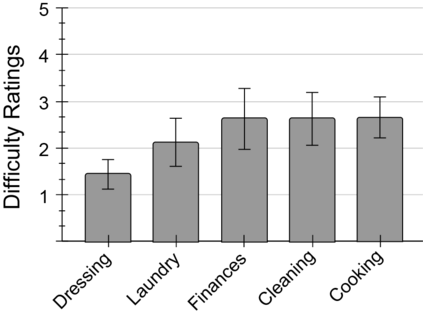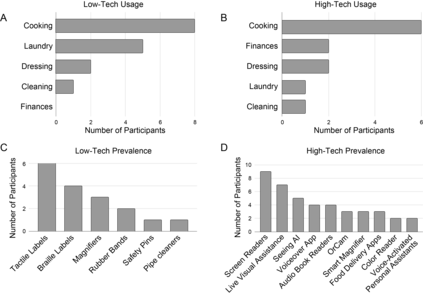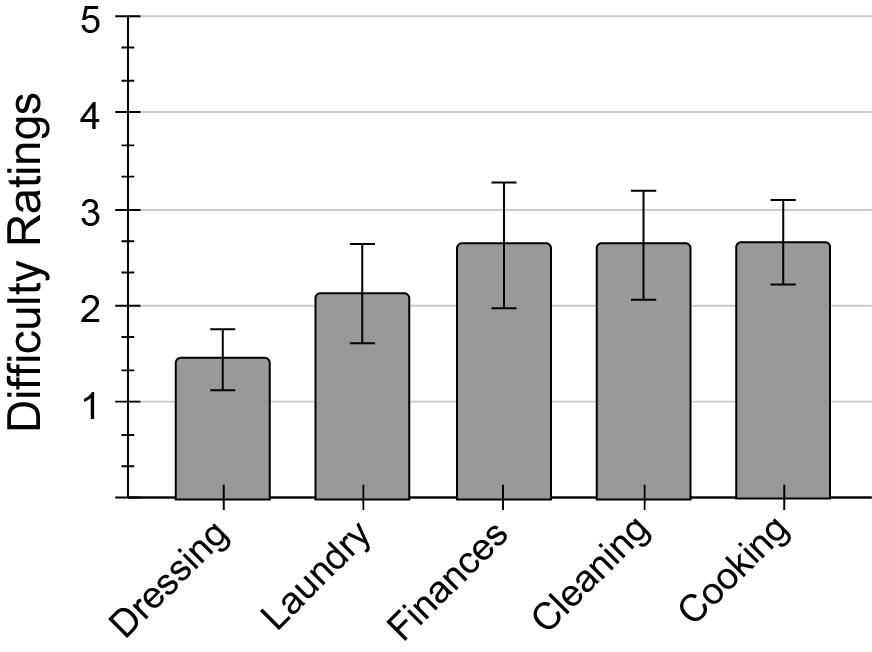People who are blind face unique challenges in performing instrumental activities of daily living (iADLs), which require them to rely on their senses as well as assistive technology. Existing research on the strategies used by people who are blind to conduct different iADLs has focused largely on outdoor activities such as wayfinding and navigation. However, less emphasis has been placed on information needs for indoor activities around the home. We present a mixed-methods approach that combines 16 semi-structured interviews with a follow-up behavioral study to understand current and potential future use of technologies for daily activities around the home, especially for cooking. We identify common practices, challenges, and strategies that exemplify user-specific and task-specific needs for effectively performing iADLs at home. Despite this heterogeneity in user needs, we were able to reveal a near universal preference for tactile over digital aids, which has important implications for the design of future assistive technologies. Our work extends existing research on iADLs at home and identifies barriers to technology adoption. Addressing these barriers will be critical to increasing adoption rates of assistive technologies and improving the overall quality of life for individuals who are blind.
翻译:暂无翻译









